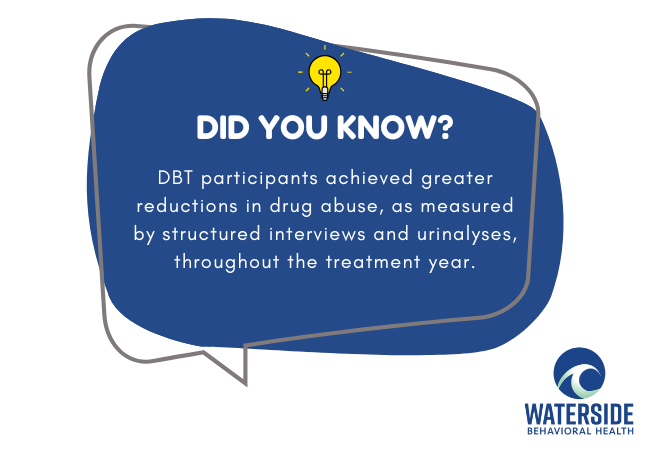Addiction is rarely just about the substance or behavior itself. Beneath the surface, there are often deep emotional wounds, difficulties in managing stress, co-occurring mental health conditions, and a lack of healthy coping skills. Dialectical Behavior Therapy (DBT), a form of psychotherapy originally developed for borderline personality disorder, has become an essential tool in addiction recovery because of its emphasis on emotional regulation, distress tolerance, and interpersonal effectiveness. When applied alongside other therapies, DBT becomes a powerful ally in long-term recovery from addiction and associated behavioral issues.
The Link Between Addiction and Emotional Dysregulation
At the core of addiction, whether it’s to substances or behaviors like gambling or compulsive eating, is a struggle with managing intense emotions. People often turn to substances as a way to cope with pain, anxiety, or trauma. These substances may offer temporary relief, but in the long run, they reinforce a dangerous cycle: emotional discomfort leads to substance use, which leads to consequences that create more emotional distress.
Many individuals battling addiction also experience co-occurring mental health issues. For instance, someone dealing with depression or anxiety may be more likely to use drugs or alcohol as a form of self-medication. Without effective tools to regulate emotions or navigate stressful situations, relapse becomes an ongoing risk—even after a detox or inpatient stay.
This is where DBT becomes incredibly useful.
What is DBT and Why It Works for Addiction Recovery
DBT is rooted in cognitive-behavioral principles but places a unique emphasis on acceptance and change. It integrates mindfulness strategies with traditional behavior therapy techniques to help people acknowledge their feelings without judgment while also learning to change harmful behaviors.
DBT operates through four primary skill sets:
-
Mindfulness – being present in the moment, aware of thoughts and feelings without getting overwhelmed by them.
-
Distress Tolerance – managing crises without resorting to harmful behaviors like substance use.
-
Emotion Regulation – identifying and controlling intense emotions that often drive addiction.
-
Interpersonal Effectiveness – setting boundaries, asking for help, and maintaining healthy relationships.
These skills don’t just help individuals in the moment—they provide a long-term foundation for emotional stability and resilience.
Reducing Relapse Through Emotional Mastery
One of the leading causes of relapse is the inability to manage emotional discomfort. DBT helps individuals recognize when they’re being triggered by certain thoughts, memories, or interactions. Instead of reacting impulsively, DBT skills encourage deliberate responses grounded in mindfulness and acceptance.
Let’s say someone in recovery is dealing with feelings of shame about their past. Instead of reaching for a drink to numb those feelings, they might use a DBT technique like the “TIPP” skill (Temperature, Intense exercise, Paced breathing, and Progressive muscle relaxation) to ride out the distress without spiraling. This kind of proactive skill-building can significantly reduce relapse rates and improve long-term outcomes.
In this context, DBT can complement and enhance Cognitive-Behavioral Therapy in Massachusetts, creating a more comprehensive therapeutic approach tailored to each person’s needs.
DBT and Co-Occurring Disorders
Addiction often doesn’t exist in isolation. Individuals may also experience depression, anxiety, post-traumatic stress, or personality disorders. DBT has been shown to be especially effective in treating individuals with co-occurring disorders, where emotional instability and intense mood fluctuations are prominent.
For example, someone receiving Depression Therapy in Massachusetts who also struggles with addiction may benefit from DBT’s emotion regulation techniques. Similarly, clients participating in Anxiety Treatment in Massachusetts often report that DBT’s mindfulness skills reduce rumination and allow for greater calm in high-stress situations.
When integrated into Mental Health Treatment Programs Massachusetts offers, DBT becomes a cornerstone for people facing multiple overlapping challenges.
Addressing Trauma Through DBT
Trauma is a frequent underlying factor in substance use. Whether it stems from childhood abuse, domestic violence, or a traumatic loss, unresolved trauma can lead to patterns of avoidance, emotional suppression, and harmful behaviors.
Traditional therapy alone may not be sufficient for individuals who find it difficult to verbalize or process traumatic events. DBT provides tools that allow trauma survivors to stay grounded in the present moment while gradually confronting and working through their past.
This makes it a natural complement to Trauma Therapy in Massachusetts, offering both structure and flexibility. Clients can learn to regulate their emotions without becoming overwhelmed and eventually begin to challenge the beliefs and behaviors formed in the wake of trauma.
Strengthening Recovery with Structure and Support
Addiction recovery demands consistency and structure. DBT provides a framework for daily living that can help fill the void left behind when substances are removed. The use of daily mindfulness practice, journaling, and skill logs keeps individuals engaged and accountable.
In many cases, DBT is delivered in a group format, where clients can practice skills with peers and receive feedback. These groups reinforce community and connection—two essential components of long-term recovery. They also provide a safe space for individuals to be vulnerable, build trust, and understand that they’re not alone in their struggles.
In a high-quality Mental Health Treatment Center in Massachusetts, clients are encouraged to integrate DBT with other therapeutic modalities for holistic healing.
DBT and Behavioral Addictions
While most people associate addiction with substances, behavioral addictions—such as gambling, sex addiction, compulsive shopping, or internet addiction—are just as real and just as destructive. These behaviors often serve the same function: to escape or avoid difficult emotions.
DBT has proven successful in helping individuals address behavioral addictions by identifying triggers, increasing emotional awareness, and building distress tolerance. When people learn that they can manage stress without giving in to compulsive behaviors, their recovery becomes more sustainable.
Whether the behavior is rooted in impulsivity, anxiety, or trauma, DBT allows individuals to explore the underlying causes and replace destructive behaviors with healthier responses.
Real-Life Application of DBT Skills in Recovery
What sets DBT apart is its emphasis on practicality. It’s not just about talking through problems—it’s about developing tools that can be used in real time. For someone in recovery, this might look like:
-
Using mindfulness to observe cravings without acting on them.
-
Applying emotion regulation to identify the true feeling beneath the urge to use.
-
Practicing interpersonal effectiveness when repairing relationships damaged by addiction.
-
Engaging distress tolerance when experiencing withdrawal symptoms or emotional pain.
These skills turn everyday situations into opportunities for growth and healing.
Why Choose Waterside Behavioral Health?
At Waterside Behavioral Health, we understand that addiction is more than a chemical dependency—it’s an emotional and psychological struggle that deserves compassion and clinical expertise. Our programs are designed to treat the whole person, not just the symptoms. We provide access to a range of evidence-based therapies including Dialectical Behavior Therapy in Massachusetts, creating personalized care plans that address co-occurring disorders, trauma, and behavioral challenges. Our team is committed to helping you build the skills, self-awareness, and resilience necessary for lasting recovery.
Whether you’re just beginning your journey or returning to treatment, we provide the support you need in a safe, nurturing, and empowering environment.
Conclusion
Dialectical Behavior Therapy has transformed the way we approach addiction and behavioral health treatment. By equipping individuals with concrete skills to manage their emotions, cope with distress, and build healthy relationships, DBT supports both immediate recovery goals and long-term well-being. It doesn’t replace other therapies—it enhances them, creating a balanced and integrated path forward.
If you or a loved one is seeking help, Waterside Behavioral Health is here to guide you. Our Mental Health Treatment Programs Massachusetts residents trust offer comprehensive, compassionate care tailored to your needs. Call us today at (774) 619-7750 to take the first step toward healing.
Frequently Asked Questions (FAQs)
What is Dialectical Behavior Therapy (DBT)?
DBT is a form of talk therapy that blends cognitive-behavioral techniques with mindfulness practices. It helps individuals regulate emotions, tolerate distress, improve relationships, and change harmful behaviors—making it highly effective for those recovering from addiction.
How does DBT help in addiction recovery?
DBT equips individuals with tools to manage emotional pain and cravings without turning to substances. Its focus on distress tolerance and emotional regulation reduces the risk of relapse and supports lasting recovery.
Can DBT be used alongside other therapies?
Yes, DBT works well in conjunction with other treatment modalities such as Cognitive-Behavioral Therapy (CBT), trauma-informed care, and medication management. It’s often integrated into comprehensive treatment plans.
Is DBT helpful for co-occurring disorders?
Absolutely. DBT is especially beneficial for individuals with dual diagnoses, such as addiction paired with anxiety, depression, or trauma. It helps manage both substance use and underlying mental health symptoms.
What kind of DBT programs are available in Massachusetts?
Massachusetts offers various DBT programs through outpatient and residential treatment centers. These programs typically include individual therapy, skills training groups, and 24/7 support in crisis management.





